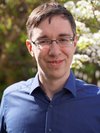In the future, ultra-stable clocks will be available on the ground and in space, as well as high-precision time and frequency transmission systems. The goal of this project is to integrate data from these new tools into GNSS geodetic data analysis and to analyse their potential for computing global geodetic precision products derived from GNSS.
The project is carried out by the Technical University Munich (TUM) and GFZ as part of the FOR5456 research group, whose overarching goal is to fully exploit ultra-stable clocks and high-precision frequency and time transmission in geodesy (see here). Within the research group the technology for a lossless link between the Geodetic Observatory Wettzell (GOW) and GFZ geodetic observatories will be provided, an ultra-stable optical clock at the GOW will be installed and operated, and a link between the Potsdam observatory and the optical clocks at PTB (Physikalisch-Technische Bundesanstalt Braunschweig) via a compensated optical fiber is planned. The resulting opportunities will be investigated in detail in this project with a focus on GNSS.
The benefits of lossless linking of GNSS receivers to a common clock on short baselines on the GOW campus and on the long baseline between GOW and Potsdam will be evaluated using closure experiments. In parallel, the full potential of modelling the available ground and space clocks for satellite orbit improvement, decorrelation of estimated parameters, and determination of geodetic parameters in a global network will be explored. The results of various investigations, such as classical stability analyses (see Fig. 1), will be considered for the deterministic and stochastic modeling of the ground and space clocks.
The obtained findings are extrapolated to global GNSS networks using simulations and real data to evaluate, by means of the developed methods, the potential and trade-offs of time coherence (realized by ground and space links) and the dis-/advantages of modelling highly stable ground and space clocks for the estimation of global geodetic parameters.
Zuwendungsgeber: Deutsche Forschungsgemeinschaft (DFG)
Förderung: seit 2023
Webseite: clockmetrology.de/en/


![[Translate to English:] Mittlere Frequenzstabilitäten für GPS- und Galileo-Satellitenblöcke](/fileadmin/_processed_/8/7/csm_mean_frequency_stabilities_ef4b45b895.png)

